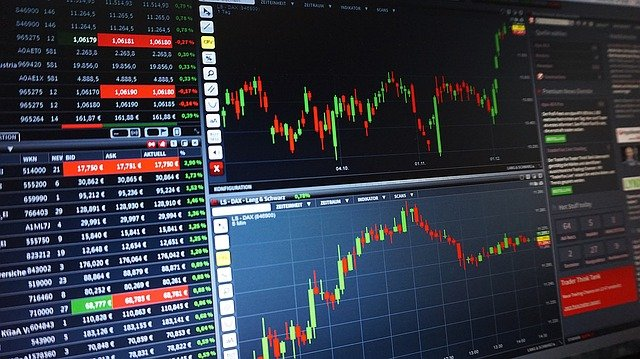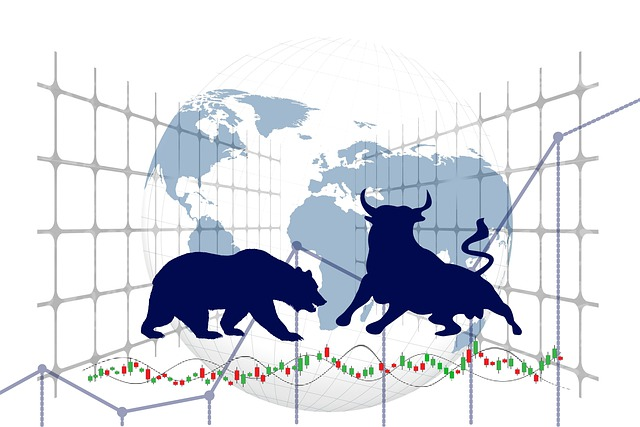Investing in the stock market can be an intimidating process for novice investors. The terminology is often confusing, and it’s difficult to know which terms are important. However, understanding some of the more common investment terms will help you make better decisions about where to invest your money. In this blog post, we’ll define outperformance and other important investment terms that every investor should know!
- What is outperformance?
- What is alpha?
- What is beta?
- What is benchmarking?
- What are capital gains?
- What is a hedge fund?
- What is an index?
- What is a bull market?
- What is Earnings Per Share (EPS)?
- What is short selling?
- What is a market order?
- What is the long position?
- What do Generation Z and the Millennial generation have to do with the stock market?
What is outperformance?
Outperformance is when an investment performs better than its peers or index. Outperformance is one of the main reasons investors try to beat the market by buying certain stocks, but it’s important to remember that beating the market doesn’t guarantee returns!
What are strategies for outperformance?
There are several different ways investors can attempt to outperform a benchmark or index. A popular way to try and beat the market is by using a strategy called buying on dips. Buying on dips means waiting for stocks that have fallen in price over time, then purchasing them while they’re low in hopes of profiting when their stock rises again. Another common outperformance strategy is known as value investing, which involves looking for companies with a low price-to-earnings ratio. In general, value investors try to purchase stocks that are trading for a lower price than their potential earnings would suggest they’re worth.
What is the difference between outperformance and underperformance?
Outperformance means outperforming your peers; underperformance means performing worse than your peers. Investors generally use the terms alpha and beta to describe whether an investment outperforms or underperforms its benchmark index. For example, if a stock has a beta of one, it will move with the market by fifty percent (one plus one). If that same stock moves up ten points while the overall market moves down five points, the stock has outperformed the market by five points (ten minus five). Conversely, if the stock falls ten points while the overall market rises five points, the stock has underperformed the market by fifteen points (-five plus ten).
Savvy investors copy top-performing traders. When they trade, you trade.
Choose a broker based in the region where you reside.
eToro USA LLC and eToro USA Securities Inc.; Investing involves risk, including loss of principal; Not a recommendation
Socially Responsible Investing Platform – CA
Copy Trading Platform – UK & EU
ESG & Sustainable Investing Platform – UK & EU
Copy Trading Platform – Global
ESG & Sustainable Investment Platform- Global
eToro is a multi-asset investment platform. The value of your investments may go up or down. Your capital is at risk.
What is an outperformer?
When it comes to stocks, an outperformer is a company whose share price has increased more than the overall market. Outperformance can also refer to an investment strategy that produces better results than the market as a whole. Generally speaking, outperformance is considered to be a good thing – it means that your investments are doing better than the rest of the market!
What is an outperformance option?
An outperformance option is an investment strategy that gives the investor the right, but not the obligation, to sell a security at a set price on or before a certain date. This type of option is generally used by investors who believe that the stock of a particular company will outperform the market as a whole.
What is alpha?
Alpha is a measure of how much a stock or investment strategy outperforms the market. It’s calculated by subtracting the beta from the rate of return. For example, if a stock has a beta of one and a rate of return of ten percent, its alpha would be nine percent (ten minus one). Alpha is typically used to measure investment managers’ returns.
What are alpha generators?
Alpha generators are investment strategies that aim to achieve an alpha of two or higher. Generally speaking, these types of investments tend to be more complex than traditional stock market investments and require a great deal of hands-on management.

What are alpha generation funds?
Alpha generation funds are mutual funds or other investment vehicles that invest in alpha generators. They may focus on a specific type of alpha generator, such as an equity long/short fund, and their returns are based on the performance of these investments.
What is alpha decay in finance?
Alpha decay is a phenomenon that can occur when an investment outperforms the market for an extended period of time. Eventually, the alpha generated by the investment will diminish and it will no longer be able to outperform its peers. This is because the stocks or investments that make up the index become more expensive as they continue to outperform, making it more difficult for the investment to maintain its edge.
What is the alpha formula?
The alpha formula is a measure of the rate and amount which an investment or investment manager has outperformed (or underperformed) its benchmark. It’s equal to the excess return generated by the investment, divided by the volatility of those returns. For example, if a stock has an alpha of two and returns ten percent, its volatility would be five percent (ten minus five).
You may also want to read What are CFD stocks and how can you trade them?
What does Gen Alpha stand for?
Gen Alpha stands for Generation Alpha, which is the name of an investment philosophy that aims to discover and invest in new markets – basically finding “the next big thing” before anyone else does. This philosophy was developed by a group of people who identified certain patterns among successful investors and then built a system around those ideas. It’s extremely difficult to consistently find new investment opportunities, which is why many people believe that those who have been the most successful at investing are those who have had an edge over other investors.
What can I expect from Gen Alpha?
As with any investment strategy, results will vary. Some investors have had positive experiences using this philosophy to grow their portfolios – whether through investing or by managing money for others – while others haven’t been as successful. As with any investment, we highly recommend that you do your homework in advance of making any moves in the stock market.
What is positive alpha?
Positive alpha is a measure of an investment’s performance that is greater than the market as a whole. In other words, it’s a way of measuring how much the investment has outperformed its peers. This can be accomplished by generating positive returns while also keeping volatility low.
Savvy Investors are also reading…
The Best Sites to Learn How the Markets Work
The Best Artificial Intelligence Investing Sites
The Best Supported Algorithm or Quant Trading Sites
What is negative alpha?
Negative alpha is simply the inverse of positive alpha – it’s a measure of an investment’s performance that is below the market as a whole. In other words, it’s a way of measuring how much the investment has underperformed its peers. This can be accomplished by generating negative returns while also keeping volatility low.
What are some factors to consider when choosing an alpha generator?
There are many factors to consider when choosing an alpha generator, including the fee structure and how much time you’ll have available for managing your investments. For example, if you’re looking into investing in a mutual fund that invests in equity long/short funds, take the time to research whether its fees are reasonable given what it’s offering.
What is beta?
Beta is a measure of how volatile a stock is in comparison to the market. A beta of one means that the stock moves up and down with the market. A beta of two means that the stock moves up and down twice as much as the market. Generally, stocks with a higher beta are considered to be more risky than those with a lower beta.
What is beta testing?
Beta testing refers to when a company releases its product or service to users for free before it is available to the general public. The goal of a beta test is to identify bugs and other issues that may need fixing before releasing the product or service publicly.

What are beta generators?
Beta generators, also known as alpha-generating strategies, invest in securities with high betas so they can produce higher returns than their benchmark indexes. They are generally considered to be riskier than traditional investment strategies, but may also produce greater returns.
What is benchmarking?
Benchmarking refers to the process of comparing your portfolio’s performance against a standard – typically a stock index like the S&P 500 or an asset allocation model. The purpose of this comparison is to determine how your investments are performing – whether they’re meeting the goals that you have set for them.
What is a benchmark tracking error?
Benchmark tracking error refers to how close a portfolio’s performance comes to its benchmark index, as measured by standard deviation from rolling monthly returns versus those of the index itself. The lower the number, the better the portfolio is performing in relation to the benchmark.
What are capital gains?
Capital gains refer to the increase in the value of a security or investment over time. When you sell a security or investment for more than you paid for it, you realize a capital gain. Capital gains are taxed at different rates depending on your income level and tax bracket.
What are capital losses?
Capital losses refer to the decline in the value of a security or investment over time. When you sell an asset for less than you paid, it results in a capital loss that can be used as part of your current year’s tax deductions against other income sources through what is known as “tax-loss harvesting.”
What is the capital gains tax rate?
The capital gains tax rate refers to how much a taxpayer pays in taxes on any realized or unrealized gain from investments. The higher your income level and/or marginal tax bracket, the more you pay in taxes when selling an investment with a profit. Capital loss deductions can be used to offset some of these taxes.
What is a closed-end fund?
A closed-end fund (CEF) is a type of investment vehicle that raises money from investors and then uses that money to purchase assets, such as stocks, bonds, or other securities. These funds are traded on exchanges like regular stocks, meaning that their prices can change throughout the day.
What is financial modeling?
Financial modeling refers to a process of creating complex mathematical equations and algorithms that represent real-world scenarios, such as future cash flows or risk analysis. This allows investors to “test” potential investments before actually making them.
What is a hedge fund?
A hedge fund is an alternative investment that pools together money from many investors and invests it in different assets, including stocks, bonds, derivatives, and others. Unlike mutual funds or exchange-traded funds (ETFs), which are regulated by the Securities and Exchange Commission (SEC), hedge funds are not required to disclose their positions, holdings, and other information. Many experts worry that this lack of transparency makes it difficult for investors to assess the risks they’re taking when investing in a hedge fund.
How do hedge funds generate alpha?
Alpha is generated by taking on risk that is not found in the benchmark index. Hedge funds often invest in assets that are considered to be more risky, such as distressed debt, private equity, and venture capital. They also use a variety of strategies – such as leverage, short selling, and derivatives – that can increase their potential return but also increase their level of risk.
What does it mean to invest in a hedge fund?
Investing in a hedge fund means entrusting your money with what is essentially an unregulated investment vehicle that uses strategies and takes risks that are often not found in other types of funds or investments, such as mutual funds or ETFs. You should always do extensive research before investing in a hedge fund to make sure you understand the risks involved.
Why are hedge funds named?
Most hedge funds are named after the person who founded them. Some of these names have become popular among investors, spawning similar investment vehicles with different strategies but also sharing many of the same risks. Examples include Julian Robertson’s Tiger Fund and George Soros’ Quantum Fund.
Can I open my own hedge fund?
As of this writing, no. The Dodd-Frank Wall Street Reform and Consumer Protection Act, which was passed in 2010, made it much more difficult for individuals to start their own hedge funds. In order to do so, you now need to be an accredited investor – meaning you have a net worth of at least $1 million or earn at least $200,000 per year.

What is an index?
An index is a statistic used by financial professionals as a benchmark for comparison with different investments. For example, the Dow Jones Industrial Average is an index that tracks 30 large companies and provides a benchmark for how they perform. A common criticism of indices is that some do not accurately reflect what’s going on in the market – one reason why many investors use indexes as benchmarks rather than investing directly in them.
What are exchange-traded funds (ETFs)?
Exchange-traded funds are a type of investment fund that tracks an index, such as the S&P 500. They trade on exchanges and can often be bought and sold throughout the day just like stocks. ETFs offer investors access to different types of investments without requiring them to operate complicated hedge fund portfolios or engage in other types of complicated trading activities.
What is a mutual fund?
A mutual fund is an investment vehicle that pools together money from many investors and invests it in different assets, such as stocks, bonds, or derivatives. A large number of people invest in these funds because they’re easier to manage than investing on your own – you just buy shares in the mutual fund! However, because it’s easy to buy and sell these funds quickly, they don’t typically outperform other investments over time.
What is a unit investment trust (UIT)?
A UIT is an investment vehicle that pools together money from many investors and invests it in different assets. The biggest differences between a UIT and other types of mutual funds are that UITs do not offer any type of professional management, they can only be bought or sold in predetermined amounts (i.e., you cannot purchase partial units), and most importantly – their term is set at the time of sale!
What is an index fund?
An index fund is a type of mutual fund that tracks an index, such as the S&P 500. These funds are designed to provide investors with a low-cost way to invest in different types of assets. Because they’re passively managed and track an index, index funds typically have lower fees than actively managed mutual funds.
What is leverage?
Leverage is the use of debt to increase the potential return on an investment. For example, if you invest $100 in a stock that doubles in value, your return would be 200% (your original investment plus the 100% gain on your investment). However, if that stock falls in price by 50%, you would lose all of your original investment plus an additional 50% (your initial investment multiplied by the loss of your investment). Leverage can be a powerful tool, but it also increases the risk that investors take on when they invest in a particular security.

What is a bull market?
A bull market is a financial market of a group of securities in which prices are rising or are expected to rise. A common criticism of indices during periods where they’re experiencing huge gains – such as the stock index from 2000-2003 and 2007-2009 – is that these markets may actually be bubbles and about to burst. However, because it’s difficult to predict when and how a market will behave, it’s often more prudent for investors to ride the wave of a bull market until it eventually comes to an end.
What is a bear market?
A bear market is a financial market of a group of securities in which prices are falling or are expected to fall. A common criticism of indices during periods where they’re experiencing large declines – such as the stock index from 2008-2009 and 2011-2012 – is that these markets may actually be bubbles about to burst. However, because it’s difficult to predict when and how a market will behave, it’s often more prudent for investors to ride the wave of a bear market until it eventually comes to an end.
What is a stock?
A stock represents ownership in a company and gives the holder a claim on its assets and earnings. When you purchase stocks, you become a part owner of the company and are entitled to vote on important matters, such as who should be elected to the board of directors. Additionally, as the company makes money, it can choose to pay out a portion of its earnings in the form of dividends.
What is a bond?
A bond is a type of debt instrument that pays periodic interest payments (also known as coupons) to investors until the bond matures and is repaid. Bonds are considered less risky than stocks, which is why they typically offer a lower rate of return. However, because bonds are backed by the creditworthiness of the issuer, they’re less likely to default on their payments than stocks.
What is a P/E ratio?
The P/E ratio (or price-to-earnings ratio) is a measure of how much investors are willing to pay for a company’s earnings. It is calculated by dividing the stock price by the annual earnings per share.
What is a Dividend?
A dividend is a payment made by a company to its shareholders out of its profits. The amount of the dividend is usually fixed and paid at regular intervals (e.g., quarterly or annually). However, dividends can also be paid in the form of other assets such as stock.
What is Earnings Per Share (EPS)?
Earnings per share is the portion of a company’s profit allocated to each outstanding share of common stock as per the company’s financial statements. It is calculated by dividing the net income attributable to common shareholders by the weighted average number of common shares outstanding during the reporting period.
What are blue chip stocks?
Blue chip stocks are large, well-established companies that have a long history of paying dividends. Most blue chip stocks pay a dividend every year and boast a high market capitalization – which means they’re typically worth more than $15 billion each.
What is a bid?
A bid is an offer to buy a security at a specific price. It can be either the best (highest) offer currently on the table or the first offer made when trading begins anew. Typically, a bid will be higher than the asking price.
What is an ask?
An ask is an offer to sell a security at a specific price. It can be either the best (lowest) offer currently on the table or the first offer made when trading begins anew. Typically, an ask will be lower than the bid price.
What is a close?
The close is the last price of a security at the end of a trading day. It’s used to calculate things like the daily percentage change, which is how you track whether a stock is up or down on a given day. The open is the first price of a security at the beginning of a trading day.
What is a limit order?
A limit order allows you to set your price and instructs an exchange to execute a trade only if it can be done at that price (or better). A buy limit order may only be executed at the specified limit price, while a sell limit order will only be executed if the stock can be sold at or above the limit price.
What is short selling?
Short selling is the sale of a security that you do not own and hopes to buy back at a lower price so you can deliver it to the buyer. It’s often used as a way to profit from a falling stock price. When you short-sell, you borrow the security from your broker and sell it immediately. You then hope to buy the same security back at a lower price so you can return it to the lender and make a profit.
What is a margin account?
A margin account allows investors to borrow money from their broker to purchase securities. While they can magnify a trade’s potential profits, margin accounts also significantly increase risk because there is no upper limit on the amount of money you can lose in a single day if your trades go south.
What is the spread?
The spread is the difference between the bid price and the ask price. It’s how brokers make their money by charging a commission on each trade. The wider the spread, the more expensive it is to buy or sell a security.
What is market capitalization?
Market capitalization, also known as market cap, is a measure of a company’s size based on its share price and the total number of shares outstanding. It is calculated by multiplying a stock’s price per share by the total number of common shares outstanding.
What is volatility?
Volatility refers to how much the value of an asset changes over time, or more specifically, the standard deviation from that asset’s average value. Investors often look at historic volatility to get an idea of how much the price might swing in the future, and therefore whether it’s risky or not for them to invest.
What is a market order?
A market order is used when you want your trade executed immediately at current prices. This type of trading will take place at the best available price, regardless of how far away it is from the current market price.
What is a limit order?
A limit order allows you to set your price and instructs an exchange to execute a trade only if it can be done at that price (or better). A buy limit order may only be executed at the specified limit price, while a sell limit order will only be executed if the stock can be sold at or above the limit price.
What is the long position?
A long position is an investment in which you own more shares than you have borrowed. The aim of any long position is to profit from a rising stock price. Conversely, a short position is created when you borrow shares and sell them immediately, with the hope of buying them back at a lower price.
What is a short position?
A short position is an investment in which you own more shares than you have borrowed. The aim of any long position is to profit from a rising stock price. Conversely, a short position is created when you borrow shares and sell them immediately, with the hope of buying them back at a lower price.
What are call options?
Call options give buyers the right, but not obligation to buy a stock at a specific price within a certain time frame. They’re used when you think that the value of an asset will rise in the future. In contrast, put options are bought when you believe an asset’s value is going to fall soon.
What are puts?
Puts are a type of option that gives the buyer the right to sell a security at a specific price within a certain time frame. They’re used when you think that the value of an asset will fall in the future. In contrast, call options are bought when you believe an asset’s value is going to rise soon.
What is a stop order?
A stop order is an instruction to your broker to buy or sell a security when it reaches a certain price, also known as the “stop price”. A buy-stop order becomes a market order once the stock hits the stop price, while a sell-stop order becomes a limit order.
What are futures contracts?
Futures contracts are agreements to buy or sell a certain quantity of an asset at a set price on a specific date in the future. They’re often used by investors as a way to protect themselves from potential price swings. For example, if you think the stock market is going to crash in six months, you could buy a futures contract as a way to lock in the price.
What do Generation Z and the Millennial generation have to do with the stock market?
According to a recent study of government data, two generations of Americans have very different stock market outlooks. While Gen Z is far more pessimistic about the economy and their own earnings potential than older generations, Millennials are much more optimistic than their younger siblings when it comes to both. In fact, 36% of Millennials believe that they will actually be richer in five years’ time.
What is ESG?
ESG stands for Environmental, Social, and Governance. It’s a term used to describe investments that take into account the social and environmental impact of a company, in addition to its financial performance. ESG investing is becoming increasingly popular as investors become more concerned about the ethical implications of their choices.
In conclusion on outperformance and generation of alpha
In conclusion, there are a variety of important investment terms that you need to be familiar with in order to make informed decisions about your portfolio. By understanding outperformance, long positions, short positions, call options, put options, stop orders, and futures contracts, you’ll be on your way to becoming a more savvy investor. Additionally, it’s important to keep an eye on Gen Z and Millennial investors, who are shaping the economy in different ways. ESG investing is also taking off as businesses become more aware of their impact on society and climate change and look to create an equitable and sustainable world. You may also want to read about Passive Investing methodologies.
Caveats, disclaimers, younger siblings & the new generation
At ESG | The Report, we believe that we can help make the world a more sustainable place through the power of education. We have covered many topics in this article and want to be clear that any reference to, or mention of investors determine, time generation alpha, age groups, same period, not a return, diversification, success or referred in the context of this article is purely for informational purposes and not to be misconstrued as investment or any other legal advice or an endorsement of any particular company or service. Neither ESG | The Report, its contributors or their respective companies, nor any of its members gives any warranty with respect to the information herein and shall have no responsibility for any decisions made, or action taken or not taken which relates to matters covered by ESG | The Report. As with any investment, we highly recommend that you do your homework in advance of making any moves in the stock market. Thank you for reading, and we hope that you found this article useful in your quest to understand ESG and sustainable business practices. We look forward to living together in a sustainable world with you.
Astute investors have also read…

Dean Emerick is a curator on sustainability issues with ESG The Report, an online resource for SMEs and Investment professionals focusing on ESG principles. Their primary goal is to help middle-market companies automate Impact Reporting with ESG Software. Leveraging the power of AI, machine learning, and AWS to transition to a sustainable business model. Serving clients in the United States, Canada, UK, Europe, and the global community. If you want to get started, don’t forget to Get the Checklist! ✅
